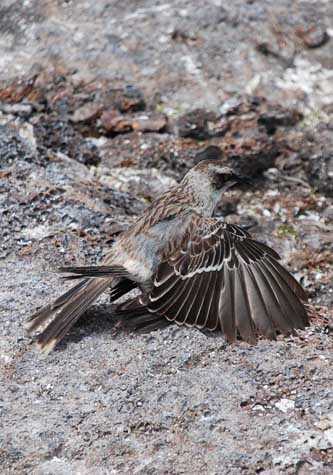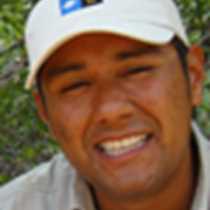Otherworldly is the only description for our arrival and presence at Genovesa as we enter a massive caldera and anchor at this desolate volcanic island. Being the only land visitor site north of the equator line, we encounter an environment that is distinct in that the ecosystem and its species developed in an area with a different ambient temperature, and hence the species are very distinct in comparison with the central archipelago. This is one of the very few calderas where a ship can navigate into and anchor in an area that has a very volcanic past.
We begin our exploration with an early morning kayak along the interior cliffs of the caldera as the wildlife starts their day of survival. Nazca boobies head out to sea as frigate birds watch overhead searching for an opportunity and a meal as they are kleptoparasitic in their nature. Young red-footed boobies with lackluster webbed feet vie for a position on the bow the National Geographic Endeavour as we drop the “hook.” Kayakers decide that inside the caldera is a good site as they explore along the coast, encountering Galapagos fur seals and swallow-tailed gulls resting among the boulders. Razor surgeonfish and Galapagos mullet schools are trying to accumulate the churned plankton and algae the covers the shallow reef.
All of us eventually experience this as we land at the two visitor sites on Genovesa Island. When one finds an environment where almost all the fauna accepts one as part of it, it affects the learned behavior of us being in a large human society. Red-footed boobies, swallowed-tailed gulls, and frigate birds are intense in their life cycle as we pass by and are witnesses to this naivety of our presence.
The afternoon brought some surprises as a couple of short-eared owls showed up on the path, one of them with a freshly killed storm petrel in its talons. We spent time photographing it and stayed in the place while trying to nap.
The end of the day was spectacular with its sunset while we were navigating out of the caldera. We feel honored that our guest experienced the small province of Ecuador named Galápagos and all biodiversity contained in every single visitor site. After all, there aren’t any places similar to this small archipelago.




